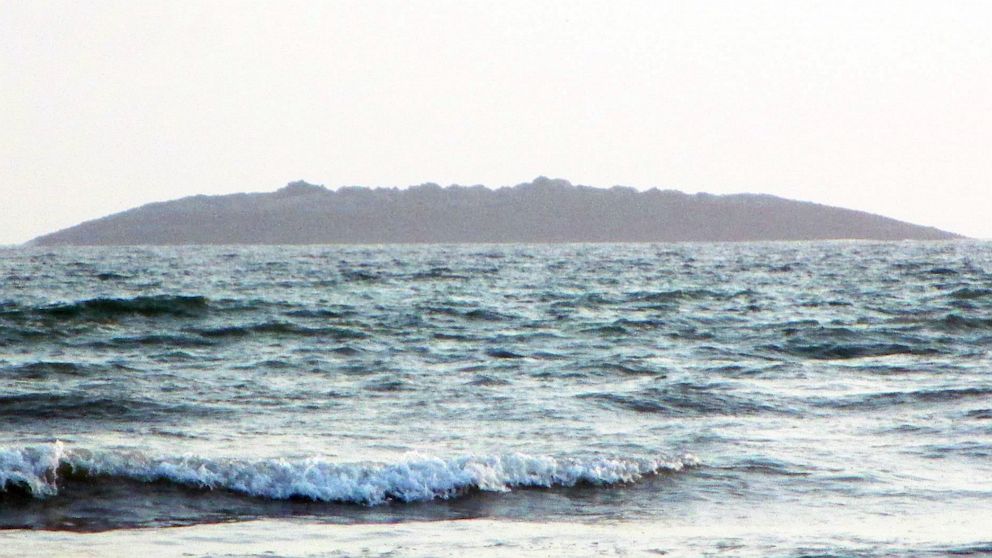Pakistan Quake Kills 39 and Creates Island
A new island was shoved to the surface during 7.7 quake.

ISLAMABAD, Pakistan Sept. 24, 2013 -- A massive earthquake struck a remote, rural area in Pakistan today, killing at least 39 people and creating a new island off the Pakistani coastline.
"It was nothing short of a miracle," Behram Baloch, a resident of the southern port city of Gwadar, told ABC News referring to the new island.
Accounts of the size and shape of the island vary. Baloch describes it as roughly 200 feet long, jutting out from the water roughly a quarter mile from the coastline. Pakistan TV channels broadcast footage of the island, shot from land, showing a grainy, rocky mass surrounded by water.
A fisherman who saw the island being formed say it was a gradual process, not sudden like an apparition.
"All the people from the village came out to see it and were praying at the same time," he says. "Tomorrow, I will go to see it up close."
But for as much as the earthquake created, it also destroyed.
Measuring 7.7 magnitude according to the U.S. Geological Survey, the earthquake was felt as far away as India's capital, Delhi, and Pakistan's biggest city, Karachi. The epicenter was a rural area in Balochistan, Pakistan's biggest but least populated province, bordering Afghanistan and Iran. The area consists of villages with mostly mud-brick homes and poor to non-existent transportation infrastructure, leaving rescue teams worried the death toll will rise sharply overnight.
Pakistani TV channels aired footage showing a steady stream of panicked workers in Quetta, the nearest major city to the quake's epicenter, flowing out from their buildings after the first tremors hit. Residents say the shaking lasted for as long as a minute before it subsided.
Initially the USGS registered the quake as a 7.4, but quickly changed its assessment. Within hours of the initial quake, the USGS registered two additional ones, measuring 5.9 and 5.6, both in the same area where the first one struck.
The deputy speaker of the Balochistan Provincial Assembly, Abdul Qadoos, told news agencies he believes at least 30 percent of all houses in Awaran, the village closest to the epicenter, were destroyed.
To help with rescue efforts, the Pakistani army deployed 300 soldiers to the affected area, a number that is expected to rise to 1,000 by Wednesday morning. The home base for rescue efforts its Khuzdar, one of the regions hard hit by the quake, with a population of more than half a million.
"Night flying helicopters with medics on their way," Major General Asim Bajwa, who handles external communication for the Pakistani military, tweeted.
Rescuers face a daunting task that poses several significant challenges. For one, getting to the hardest hit areas will be, literally, an uphill struggle. The area is rocky and partly mountainous, populated by several Pakistani tribes, some of whom are nomadic. The nearest major city, Quetta, is an eight-to-ten hour drive away. The area is overwhelmingly rural.
Damage to cell phone towers has made communication to some villages all but impossible. Pakistan also suffers from chronic electricity outages that can last for several hours, especially in smaller villages and towns. There is a concern that what little power the area received may have been cut off due to damaged transformers.




